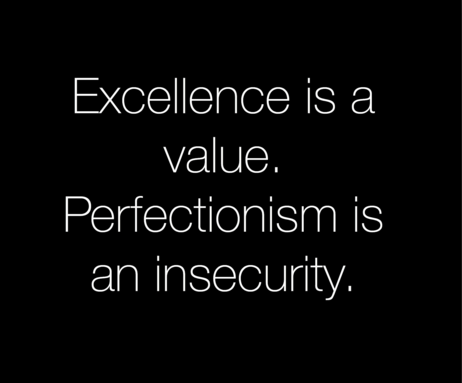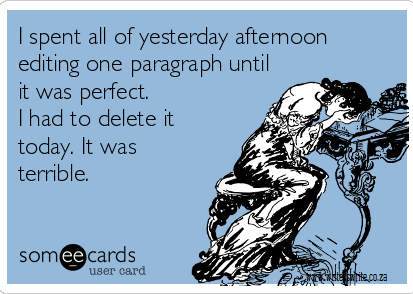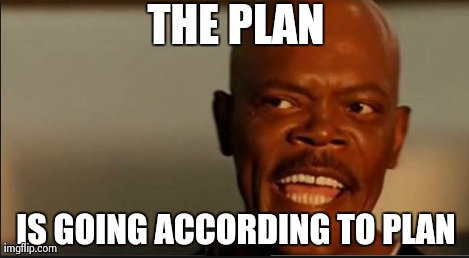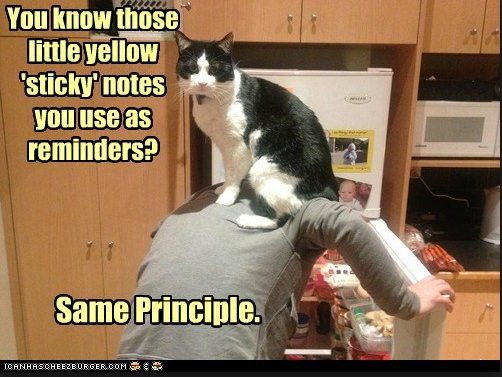
Editing is essential for crafting a superlative story. We clip away the excess, delete the superfluous and prune away the detritus to reveal the art. Yet, editing is something we’re wise to handle with care.
While lack of ANY editing is a major problem today, editing too much, too soon is just as big of a problem. Perhaps an even a bigger one.
For clarity, not all ‘editing’ is the same.
Today, we aren’t discussing proofreading and line-edit. Correcting punctuation, spelling, and grammar is perfectly fine. Moving some commas around is unlikely to endanger story integrity. We’re addressing the perils of premature content edit/developmental edit.
If we think about this for a moment, what I’m saying should make sense. If a work is only partially finished, there’s no way we can truly know what to cut and what to keep. We don’t yet have enough content/context necessary for clarity.
Editing too early is detrimental in a variety of ways.
Early Editing Uproots Subconscious Seeds

Our subconscious mind is an amazing machine. Stephen King referred to the subconscious as ‘the boys in the basement.’ The prudent author allows those ‘boys in the basement’ to do their thing.
The best way to help? Stop interfering. The subconscious mind can see the big picture in ways our conscious mind cannot.
Unlike our conscious mind, the subconscious is always working. Busy, busy, busy. It’s fitting all the pieces together in ways we’d have a tough time consciously doing.
King has his analogy, and I have mine. I think in terms of planting and cultivating a garden.
We have a story idea (overall image of the ‘garden’ we want). Then we might write out a log-line, major plot points or detailed outline (a plan). Overall, we’re at least generally aware of the story we want to create.
As we write, our subconscious mind is planting seeds that, when viewed in a microcosm of one or three chapters, will frequently seem to make no sense. The idea needs time to put down roots and grow large enough for the conscious mind to accurately discern whether it’s something to keep or something to cull.

Also a garden generally is not a singular plant. A garden is comprised of many plants of various types, colors, heights, widths, etc. Until our garden reaches a point where we can get a view of the creation as a whole we’re wasting time. Pruning, moving, replacing is wasted time and energy because we’re working blind.
Maybe that hyacinth needs to be moved because it’s too tall OR maybe we need to chill out and wait for the peonies planted nearby to come in.
Once all we’ve planted grows and blooms, THEN we have a way better idea of what plant needs to be moved, which should be filled in more (add in more coleus), and what’s a WEED that needs to GO.
Story as a Garden

I love to garden. In the fall, I decided to start over after a blight ravaged everything I’d cultivated for six years. I removed all the plants, and prepped for spring. After widening the stones (since I wanted a larger garden) I filled the area with at least a couple thousand pounds of clean soil topped with mulch.
Since I had yet to plant anything intentionally, anything that popped up over fall and winter clearly was a weed.
GONE!
This all changed once I began planting. I had an idea of what I wanted: a beautiful garden bursting with blooms known to attract hummingbirds and butterflies.
Once I had the idea, I planted the bulbs and spread the seeds. Yet, if I ever hope to have my dream garden, it’s critical for me to resist the impulse to pull anything green and sprouting because it ‘might’ be a weed.
Until whatever seedling poking through the mulch grows to a certain point, I have no way to discern flower from weed.
Same with story. We don’t realize that a possibly mind-blowing idea is trying to germinate and take root in the fertile soil of our overall idea.
By editing too early, we can possibly uproot some mind-blowing twist or turn. We might remove the wrong character or delete a scene that should have stayed.
Y’all might find this hard to believe, but it actually is possible to edit all the life/magic out of a story.
Early Editing Feeds Fear

All writers experience fear. Many of us suffer from Imposter Syndrome. We’re prone to believe unless we are a New York Times best-selling author we are a fraud. If we don’t have twenty books under our belt or an HBO mini-series based off our stories, we aren’t real authors.
The problem is that we’ll never have ANY of this if we consistently fail to finish. Perfect is the enemy of the finished. No half-finished novel has ever become a runaway success.
A story doesn’t have to be ‘perfect’ to be a hit. In fact, plenty of decent and even some outright dreadful novels have skyrocketed to the top of the charts.
Stories (like all art) are subjective. It’s impossible to craft a story everyone will love. There are way more than fifty shades of reader preferences.
Fear can paralyze productivity and halt professional growth. You know what? Maybe our novel is awful, but that isn’t necessarily because we lack talent.
We might simply be NEW. How many of you can pick up an unfamiliar instrument and are immediately ready to play on stage for money?
Storytelling is an artisan skill that takes years of training and practice. We get better by doing, by failing, then understanding what went wrong where and why. Then, armed with this new insight we write another story, and a better story.
Poisonous Perfection

Editing is a common coping mechanism used to allay anxiety. Maybe we fear we really aren’t any good. We really are talentless hacks. Our book is terrible. Why are we even doing this? A brain-damaged hamster has more talent. On and on.
Thing is, perhaps all of this is true. We won’t know until we submit a finished product for peer review (and even then nothing is set in stone).
Yet, if we keep editing and reworking, this buys us time. We want to know if our writing is any good, but also can’t bear to think it might be truly awful. So long as we remain in literary limbo, we can hold onto our illusions.
My book is as good as (insert mega author), even better! I just have to tweak a few scenes before querying…
I want all of you who’ve even started writing a novel to embrace what a HUGE step that is. The world is brimming with people who spout nonsense like, ‘Yeah I always wanted to write a book, except I never could find the time.’
In their minds the ONLY reason they aren’t the next George R.R. Martin is a lack of time-management skills. We all know this is bunk. And yet? We have to be really careful we aren’t doing the same thing.
Getting past the hard part—starting—is a fantastic step. Now finish. Pros don’t find time, we make time.
Early Editing KILLS Momentum

If we continue to go back changing things chapter by chapter, changing, changing, changing, either due to critique group feedback or our own self-edit, what happens is that we KILL our forward momentum with a big ol’ red-penning, back-spacing machete.
We can prune or progress.
Do that long enough, and it becomes hard not to be discouraged and ultimately give up. If you have been reworking the first act of your book for months, it can very easily end up in the drawer with all the other unfinished works.
Beginnings are not something I recommend spending too much time ‘perfecting.’ The big reason is that very often beginnings will change. Once we write the entire story and actually possess the BIG PICTURE, only then can we judge the merit of any opening.
We may have started too soon, too late, with the wrong hook, etc. Yet, if we spend weeks or months futzing with the opening, we get far too attached.
This means it’s all the harder to let it go because it’s a Little Darling. I’ve seen writers crater excellent plots because they refused to part with the opening they love. They would rather retrofit the rest of the novel than cut or change the beginning.
Great, now we have a super pretty opening…but the rest of the story is ‘meh’ because it’s all been redneck engineered to serve the first chapter(s) instead of the overall story.
An Editing Process I Recommend

There is no ‘right’ way when it comes to process. All I can do is possibly share one to try. If you have a way that works? Fabulous. But, if you have a hard-drive bursting with unfinished stories, maybe try something new.
When I write a book (fiction or non-fiction) I leave any kind of content edit for after I’ve finished the entire first draft. FYI: Any time I ignore my own advice and don’t do this? It’s a disaster.
Now, is it okay to reread what we’ve written the previous day (session) in order to get grounded? Absolutely! It’s also perfectly fine to correct spelling, grammar, and punctuation errors.
But, if the correction has anything to do with the STORY (narrative, dialogue, setting, etc.), instead of deleting and/or ‘fixing,’ try this. Make notes of what places you believe at the time should be fixed, deleted, changed or even expounded.
NO changing or deleting. Period. Feel free to highlight and…
Make Notes then Move ON

My advice is—instead of changing/correcting, etc.—to make a note that you believe something should be taken out/added/changed at a later time, but leave it be. I also recommend making notes in color. Red, purple, blue.
This technique is valuable in other ways. For instance, it helps maintain momentum when we hit places in the WIP where we need to fact check or research. I’ve been coauthoring a Western and am new to writing historical.
Trust me, it’s easy to lose a whole day on the Internet researching. Instead of stopping, I might write the scene with the people and in another color, make a note, ‘Research first class trains in 1870s.’
This allows me to keep writing instead of wandering off and making myself an expert in 19th century American rail travel.
Another way this method helps is if you’re writing and find yourself STUCK. If you have a log-line and a solid plot idea that’s fantastic. Yet, there will be times when we can’t seem to fit the pieces together…so skip ahead.
When I hit a wall, I might write ‘AND THEN ROMI DOES SOMETHING COOL AND FINDS A CLUE’ and pick up at the next logical place. In the meantime, my subconscious will be working on my problem even while I sleep.
Often the ‘answers’ my subconscious comes up with are WAY better than anything I could have planned. This also makes for some psychedelic dreams 😉 .
This approach also keeps me from fixating and giving my brain vapor lock trying to figure it out. The longer we pause and stay in one place the harder it will be to finish. I am not judging. Literally one finger pointed at y’all and three at me.
In the End
Don’t look back, or you’ll turn into a pillar or unfinished novels 😛 . Once you’ve made it through the first draft…THEN go make the core changes to your story if/as needed.
You may be surprised.
Something you believed HAD to be changed six weeks previously might actually have morphed into the coolest part of your story. Or maybe it was perfectly fine and can be left alone. When you go back to those notes, odds are you’ll feel differently about what needs changing and even why and HOW it needs changing 😉 .
What Are Your Thoughts?
Are you addicted to over-editing? Do you keep reworking and reworking and seem to always get stuck? Are you a perfectionist too? Afraid of failure? Or maybe afraid of success? Me? Yes to all of the above. I am a work in progress, too.
Ready for Book Beast Mode? I Live to Serve….
For anyone who longs to accelerate their plot skills, I recommend my ON DEMAND Plot Boss: Writing Novels Readers Want to BUY. Two hours of intensive plot training from MOI…delivered right to your computer to watch as much as you like 😀 .
The Art of Character is also now available for ON DEMAND.
And if you’re ready for BOOK BEAST MODE and like saving some cash, you can get both Plot Boss and Art of Character in the Story Boss Bundle (ON DEMAND). Almost FIVE HOURS with me, in your home…lecturing you. It’ll be FUN!
Also, REMEMBER my Bullies and Baddies: Understanding the Antagonist is THIS WEEK and this class will help you plot faster and tighter than ever. Join me March 29th (7-9 EST). Recordings are always included FREE if you can’t make it and also for you to be able to review.
I love hearing from you!
And am not above bribery!
What do you WIN? For the month of March, for everyone who leaves a comment, I will put your name in a hat. If you comment and link back to my blog on your blog, you get your name in the hat twice. What do you win? The unvarnished truth from yours truly. I will pick a winner once a month and it will be a critique of the first 20 pages of your novel, or your query letter, or your synopsis (5 pages or less).








31 comments
5 pings
Skip to comment form
*forwards this to boss and crosses fingers*
Omg, marry me!
This post couldn’t come in better moment – just two minutes after I mentally slapped myself for tweaking my first chapter (for 10th time) to fit all damn rules, and wrote it in my voice, relaxed, FREE and happy.
And my husband read it and said Finally 🙂
I take this as a sign from… not exactly from above, but from the far West. Maybe Valinor. That’d be great.
Anyway, you’ll probably see it soon. (buahahaha)
PS: and I also have good news about Croatian. I remembered one thing that makes it easier than English. You’ll love it.
This makes sooo much sense! I kill myself with rewrites. Literary limbo—i like that term. Thanks for sharing! Xo
Oh my God, Kristen…have you been living in my head for the past two months?
You’re right…it’s fear, it’s anxiety, it’s stalling, it’s guilt, and all the while I’m soooo stuck. I’m not ashamed to admit I’ve been really blue about this for a while now. It’s hard to write when you’re living in that kind of head-space.
Thanks for the insight. I’ve always known I shouldn’t edit as I go, but I never really understood WHY I shouldn’t. Here’s hoping I get unstuck soon. *sniff*
If you have a solid plot before you start, the temptation to futz with it is less. If you know or had a design of what each scene must do then there is less reason to mess yourself up. Make a structure, put meat on the bones and only change the parts that won’t stick.
Notes like that isn’t the only method (though I’d really break my story if I tried that method). Cyclical writing is another one, which is what I use. It’s a pantser writing technique that often gets dismissed because writers think it’s revising as you write. But it’s all in the approach.
Basically, you move around in the story while you are in CREATIVE mode. Like you might realize you need to add foreshadowing for an event in Chapter 2, or your initial description of the character doesn’t quite fit how he evolved. I’m such a rotten typist that I always fix typos to make my work on the back end easier. But unless a sentence makes no sense whatsoever, it generally stands as is.
And that’s what makes it really hard. Critical brain wants to get in there in monkey with the story. It’s the one screaming, “Oh. My. God! This story is terrible. Look at what you did to that sentence. What were thinking. And how could you have done that!” When you hear that kind of thing, back away from the story and leave it until later.
I read this and sort of understand it. I always try to follow your superb advice. But, but …
I’m in the FINAL, not preliminary, stages of editing my fifth novel, working with a very good professional editor. As it has always been my custom, I went back and started reading (just reading, not fixing) the book from the beginning to make sure the overall story arc flowed well. To my dismay, I hated the beginning. After advising others that a novel needs a strong hook at the beginning, mine had none. To top that off, I called the first chapter the “Prologue.” I’ve always hated prologues in books and felt embarassed about feeling the need to write one myself. To top all that off, I found much of the material of the Prologue repeated in Chapter One, by mistake. I wanted to scream at myself. I wrote an action scene to put at the very beginning, combined the “Prologue” into Chapter One, and ruthlessly hacked out all the repetition. It was like my garden had filled up with weeds due to neglect while I was concentrating on finishing the book. I had to do some serious weeding to make the beginning as beautiful as the rest of the garden (book). Did I do right?
Author
You did just fine. The beginning may need total rewrite….but you only had to fix THE BEGINNING. And you FINISHED. Too many get stuck perfecting a beginning and either never finish or they get to the end and the beginning NEEDS a MAJOR overhaul but now they’re too attached. Like I said, there is no ONE process but if what you’ve been doing isn’t working, try something else!
I don’t have a blog ? but your words helped me. I had been finding all sorts of ways to avoid my laptop.
I opened it today.
kk
Good stuff! I wrote the beginning of Restoration Day SO many times before I finally stopped trying to get it right all in one go and just wrote my way through to the end. And yes, it needed a heap of changes, but at least I had something to change.
This time I’m doing it differently, though. I’m doing structural edits on a full outline instead of a 160,000 word manuscript. I’m still working on the whole story rather than a few chapters, but I don’t have to waste time writing the tens of thousands of words that turn out not to belong in this book. Hopefully…
Oh, have I made this mistake big time. My first novel spent fifteen years being taken out of and then being put back into the drawer. Each time I took it out, I edited the beginning but never got past chapter five. When I finally sat down and just wrote, without letting myself go back and edit, I finally finished it in six weeks!!
Also, I’ve learned to leave in those scenes that I at first thought were stupid or unnecessary. Sometimes they are but sometimes some later development harks back to that scene and suddenly it is important. You never know for sure where the muse will take you!
Excellent! I think this can apply to edit also. I got stuck trying to make the beginning “perfect.” Gave up on it and moved on. As I near half way, I see the start was not as awful as I thought. I refuse to go back until I finish the complete novel.
You have such great timing Kristen as I have been doing this just recently.
You’re so right that early editing kills momentum! I’m currently re-working my NaNoWriMo project from 2015 and have come up with a much better outline. Despite this, I couldn’t get past the first six chapters as I wanted to go back and work on them yet again. I knew this wasn’t helping me in getting the project finished, so instead I made a few notes for each chapter and now I feel better about moving forward.
Thanks for this post – it’s good to know that I’m on the right track. 🙂
Great advice, Kristen. For those who work paperless, the Comment feature of MS Word would work great for marking areas of a draft. I assume Scrivener and other tools have similar features.
Knowing the technology is there, however, and soooo easy to use still hasn’t broken my bad habit of overediting. I think of one particular root cause.
As a pantser — nothing but bitterness and despair lies on that path, I know, but I can’t face everything I do wrong in my life before 8 am. That’s for 10 pm, with a brandy and ice at my elbow. (Yes, I do brandy wrong, too. I’m that hopeless.) As a pantser, I say, about half my time is spent writing myself into the scene. Here, the MC is going to finally commit to breaking up with his first love. It’s 10 pm, and he’s a little drunk. He thinks his sad thoughts… No. Boring. The fireplace has problems, and smoke always leaks from cracks in the flue unless a good blaze is going. Tonight, though, the smoke is worse than usual, which the MC ignores (he starts in on his sad thoughts, much to the woe of the reader, more to fix there) until smoke starts coming out of the damn wall. Too late, he leaps into action and rescues his first love, who forgives him for thinking about going with a girl who plans stuff, a girl living over the ridge, in fact, whose chimney never leaks because the foundation of her cottage is solid and square. He knows this because he visited her, yes, once. His lover has smiley eyes, though, and holds his hand, pointing out the benefits of living in a tree house, which is charming and true but frankly making a virtue of necessity at this point, since flames are pouring out of their makeshift hut. Well, from their nest high in the branches, the MC thinks he might be able to glimpse the cozy cottage over the ridge.
Great advice that I adhere to because…I always nix the first chapter. Doesn’t matter how pretty I’ve made it, by the time I get to the “the end” I discover that Chapter One was just to get me into the story world. It doesn’t serve the story, or it’s repetitive, or it’s window dressing. I love your garden metaphor so continue in that vein my first chapter is the cover crop that gets plowed under come spring to nourish the flowers and shrubs that make up the story. 😉
Words to live by. I’ve run into that, like with a certain chapter that for several weeks I’d keep saying “It’s done! now, here’s how I’ll rebuild it from scratch…” Too often, writing is driven by what we know a story *could* be that we aren’t sure how to tap into yet– so stopping to second-guess ourselves tears out those “seeds” as fast as we plant them.
One method I use to keep moving is that if I’m not happy with a line, I don’t write “add something awesome here.” Instead I write a quick best guess about what the line could be, and I Bold it. That way when it’s time to revise I can Search for bold text (in Find’s Formatted Text options) and see an approximation of what the line could be, and I might decide that’s good enough after all. And before I’m revising, I can send the writing out for feedback without any gaps in it; I just make a copy, Select All, un-Bold, and the copy’s ready to go.
I really like that bolding idea! That’s brilliant, and I’m definitely going to try it. Thank you for sharing!
I am definitely trying to avoid red-penning all over my third draft right now. I’m in the final stages of editing before I send the manuscript off to my book designer, and after going through the first three chapters I caught myself doing too much editing. Grammar and punctuation edits are good, but I was noting word changes and questioning my own descriptions of ideas, people, or places. And then I stopped and said, ‘Why am I making these changes after my editor has already done this for me?!?!’
The saying that Excellence is a Virtue is exactly the reminder I needed. Great post!
I loved your garden analogy. So much more vivid (to me) than King’s “boys in the basement”.
Of course, like so many pantsers I’ve been spinning my wheels with the first section of my book. Why oh why?
I’m planning on taking your advice the next time I open up my laptop and just diving in and writing.
Thanks for all you do!
Zooks, if yer gonna muggle around in my head (and others) at least do some dusting…
This week, wearing my editor hat, I have had 3 projects proposed and all consisted almost complete manuscripts, several chapters spit-polished, thousands of words in notes, some fair outlines, and a pretty fun storyboard.
As a developmental editor, I love the really raw material, but in order to edit, not consult, not book doctor, I need a manuscript – a whole manuscript. I need ‘proof’ that the author knows their entire story.
My response to all 3 authors was: no matter how crazy it makes you, finish the story! I can’t edit notes. I can edit a manuscript you wouldn’t show you mother. :O)
Also, I’m a firm believer in the whole subconscious seed thing.
Thanks, Kristen, for your usual nail-hit-head precision… :o)))
Thank you so much for your post! I have gathered so much perspective on the writing process from it. Please keep writing. 🙂
What I have found helps is to write the first draft and then edit it for a few months and then put it away again for months or even years because looking at it a little while after can really help you get a fresh prospective on it. So write the first draft and when you have finished it read it from cover to cover. Then put it away for a few months and try as hard as you can to persuade someone else to read it in that time. Any thoughts on this would be welcome.
This post came at the perfect time – I’m planning to share it with my Masters writing workshop at the Institute for Humane Education! Because? THIS: “The subconscious mind can see the big picture in ways our conscious mind cannot.”
Yes, how I agree, more an more I prefer to steam on to the end, after all, nothing is set in stone till you publish. I like to print out a chapter when it’s finished, read it through on paper, correct typos, but mainly get my brain ready for the next chapter.
Lost my in progress comment so trying again (in case you get 2). I hate the editing process, and the ‘kill your darlings’ seems overhyped. You can’t cut all the good bits if they move the story or character down the road to the end. I quickly get bored and sick of reading my draft and procrastination sets in. Someone, maybe my muse, said when you start randomly deleting it’s time to stop and say it’s done. This time, if I self-pub again, I will get a real demo paperback for one last round of edits, and set it free on the web. Too many other books to write with a clean slate backfilled with experience!
Author
The distinction Karen is that ‘Little Darlings’ DON’T move the story or character. That is how we determine what is good writing versus a ‘Little Darling.’For instance, my mentor Les Edgerton is just BRUTAL. He’s a craft teaching GENIUS and gem of our time. He is one of the few people who can and has made me cry (I know it is good for me…later). I still seek his feedback even though I know I am likely to bleed, but he is always correct.
And I kinda hate him for that…but then love him (and hate him in my mind 😛 ).
One of my strengths is comedy. I write some HYSTERICAL dialogue. But Les NAILED me on my first draft of ‘The Devil’s Dance.’ He was all, ‘Kristen, you are funny as hell but this is a novel. Not standup. Knock it the &%$# off. It’s you having fun with you and showing off and does NOTHING to advance the story. Cut it.’ As much as I HATED cutting that part, he was right.
So I now keep those as ‘outtakes’ for fans, LOL.
Les has a book called ‘Hooked’ which should be required reading. I have read it no less than 7 times and constantly refer to it. By FAR one of the BEST craft books ever written.
This is absolutely golden advice. Every word you have written is worth a big win in the lottery. Thank you for making it possible for me to complete the novel I’ve been scratching at for two years!
Great post. I’ve had a few thoughts about the content of my latest wip, but have resisted the temptation to go back and sort it out. I’m just plodding on with the story until I can write ‘The End’. Then, after a few days or weeks, I’ll re-read it and sort out (or not) those things I thought I needed to do.
Author
Like I said. Feel free to write liberal detailed notes (in another color). Your subconscious will chew on that and then go yay or nay. This just keeps you from getting stuck over editing and also allows your id (the reptile psycho drama queen of the brain who is great at story) to have fun and HELP.
Wow, I didn’t know how much I needed to read this today. Over the last couple weeks, I’ve taken a fun idea and bludgeoned it into a fine paste by editing too much, too soon, including the outline. I’m gonna try to reconnect with the fun daydream that got me started on the first place, and then start writing some of that instead. Possibly blindfolded, and with my backspace key taped over.
Love this. My husband often quotes (or misquotes) Isaac Asimov, who knew a thing or two about writing : I don’t ever write on a word processor (which were new when he was old) because I would never know when I was finished.
The technology advancements have actually made writing harder because it IS so easy to go back and rework, rewrite, move around, and such. I think Mr. Asimov had it right.
That said, I’m breaking that rule a bit. I write linear, it’s almost impossible for me to skip a chapter because there will be something in that skipped chapter that will make me move something or change pages and pages of stuff. Yes, that makes me stop and have to wait a bit to write it, but while the “boys in the basement” voices in my head are trying to figure out what the item is that is missing, I’m making notes on things I’ve seen that will be coming up, doing that bit of research that I need, or just organizing the outline for the next in the series. It works for me. I see the story as a movie in my head and I have to write all of it down.
What makes me fail to write is drama, family stress. I can’t write when the world is pulling an EF-5 1/2 tornado all over my real life. And I’m now playing catch up. But it IS going to get done.
[…] Feedback and editing can make writers crazy. Clare Langley-Hawthorne advises how to handle critiques, Laura van den Berg discusses whether it is really necessary to kill your darlings, Jami Gold defines line editing, Shawn Inmon has weasel words and other tips, Nathan Bransford tells us how to edit our novels, Lisa Tener asks: should I edit as I write?, and Kristen Lamb warns of the dangers of premature editing. […]
[…] Lamb on Kristen Lamb – Author, Blogger, Social Media JediThe Dangers of Premature Editing: Pruning Our Stories vs. Pillaging Them“Editing is essential for crafting a superlative story. We clip away the excess, delete the […]
[…] also be a place we hide, procrastination masked as ‘work.’ Recently, I posted on the dangers of premature editing and gave tips to help keep us moving forward on that first draft until it is […]
[…] Editing too soon, can cut the beating heart out of a perfectly good story. Premature editing KILLS. […]
[…] HERE is a post on HOW to balance a smidge of editing for use later. […]